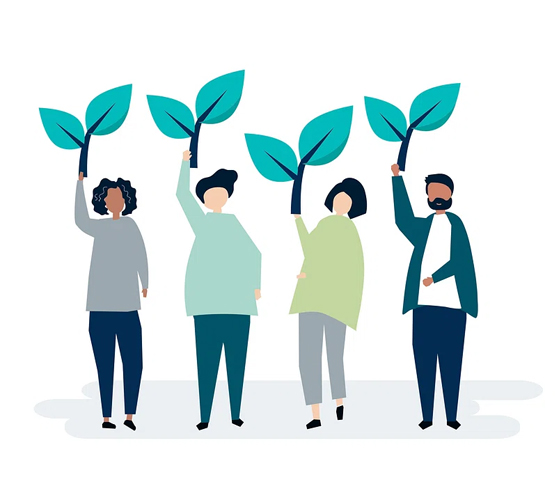Rehabilitation of Rescued Survivors of Trafficking
One of the key areas of HELP’s years long experience in anti-trafficking ecosystemthat took its utmost attention to advocate with the state.
Currently there is a multiplicity of laws, which deals with different forms of trafficking under the different laws in its pool. Moreover, the existing legislations are woefully inadequate in providing comprehensive rehabilitation and reintegration services within the community to the survivors. The currentage-old system of institutionalisation of rescued survivors of trafficking detaining them for months and years long and returning to their families without any support services leads to re-trafficking and revictimisation. There is no uniformity for addressing proper rehabilitation mechanism and victim compensation that supports long-term wellbeing of the survivors within their communities.

Yes, she says true that, this shelter home and institutional care-based approach privileges protection over rehabilitation, and suffer from several critical drawbacks, viz.,
- Shelter homes often do not provide safety, dignity and agency to the survivors, and this treatment places hurdles to true rehabilitation and care of survivors.
- The quality of services provided in these homes is poor, even in meeting essential needs of survivors, while the service providers in these homes are not adequately trained and sensitised to trafficking and rehabilitation issues.
- Shelter homes struggle to perform their rehabilitative role, and survivors are not adequately provided with skilling, education, financial aid, counselling, healthcare, and other rehabilitative services that enable them to truly build a life and livelihood for themselves.

HELP learnt that, shelter homes offer a refuge for survivors of human trafficking, yet they often fall short in providing the necessary tools to address trauma and prepare individuals for the harsh realities of the outside world. Conversely, community-based rehabilitation equips survivorsto independently confront their challenges and gain a heightened awareness of their rights.
After rescued and returned to her home, Lakshmi faced an extreme tough time. She thought to complete her education which she is so fond of indeed. But it was in vain as her future seems almost nebulous because of her marriage trails by her father. Moreover, the social stigma made it intangible for her to go and sit in a classroom. However, with a little monetary support from HELP, Lakshmi made it true her dream of completing intermediate through open education system. She learnt tailoring and has joined in a shop for daily wages of Rs. 300/- per day. Gradually the stigma around her began to disappear. Lakshmi’s story is best showcased the need of Community Based Rehabilitation having a stable life of dignity.
“It is my life and I have my own choice of living. I have enough caliber to fight and advocate for my rights and entitlements by the state. But I was detained in shelter home for months and years long where I couldn’t do what I wanted to do. I would have been the part of SHG in my community, access my social entitlements if I was with my family in my own village”.
Rani (name changed), rescued survivor of trafficking, Palnadu District.
HELP facilitates VIMUKTHI to sensitise the policy makers and planners for such Rehabilitative Servicesbased at their own living abodes within their communities:
The Community Based Rehabilitation(CBR)policy must provide services across all five elements of the CBR Matrix, providing access to services within the community or following up in the shelter homes through the village groups, as relevant. Some actions on each of the five elements are:
- Health: Access to physical as well as mental health care services.
- Education: Vocational skilling, and support to re-enroll in school systems or bridge courses.
- Livelihoods: Financial support to promote group business activities by the collectives, or survivors to initiate micro-enterprises.
- Social: Community level awareness and sensitization sessions to reduce stigma against trafficked survivors in the community.
- Empowerment: Involving rescued survivors in survivor groups and developing such groups to act as advocacy agents for the survivors.
The role of the government will be threefold – developing and implementing a policy framework, playing the role of a facilitator for the ecosystem, and providing financial support - to allow the implementation of CBR programs in a meaningful way and at scale, across several districts.
Andhra Pradesh can emerge as a pioneer by developing a CBR policy on these lines, resulting in better rehabilitative functions for the survivors, which upholds their dignity and human rights as self-empowered agents and enables them to rebuild their lives and livelihoods within the comfort of a community, rather than the confines of a shelter home.
We urge systemic stakeholders including funding agencies, individuals, institutions, philanthropists, corporate sector, academicians, intellectuals and so on that, survivors of sex trafficking can better be rehabilitated within their own living abodes with our collective actions and interventions.
ONE STEP FORWARD towards survivors makes them to up TEN STEPS AHEAD.
© Copyright 2024, HelpAp
Design & Developed by : Net Linker
